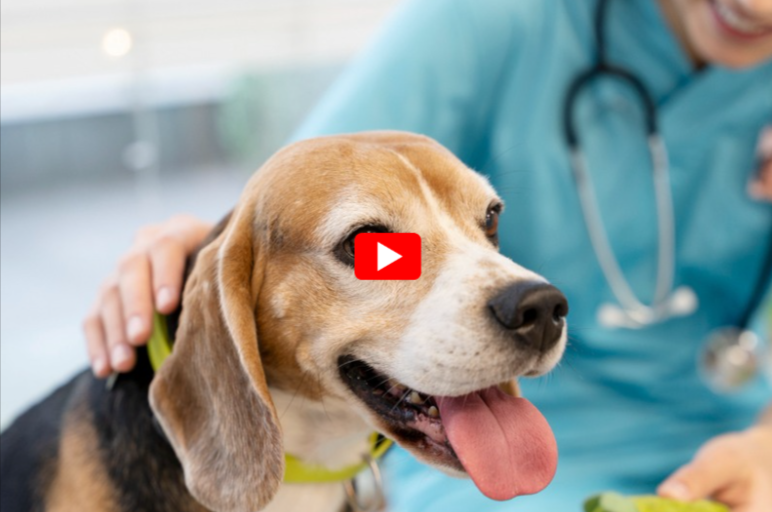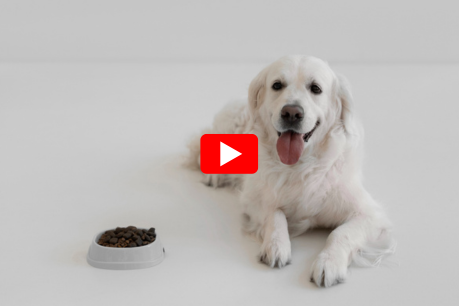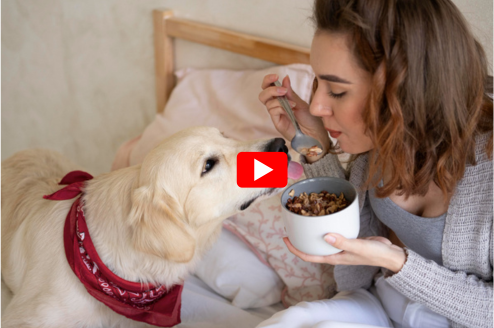Are Grapes Bad For Dogs: Symptoms & Safe Alternatives!
When it comes to the health and safety of our pets, especially dogs, being informed about what they can and cannot eat is essential. While some human foods make tasty treats for our canine companions, others can pose serious health risks and grapes are one such example.
If you’ve ever wondered, “Are grapes bad for dogs?”, the short answer is yes. But there’s a lot more to know about why they’re harmful, the signs of toxicity, and how to act if your dog eats one.
Yes, grapes are toxic to dogs and can cause kidney failure, vomiting, and lethargy. Even small amounts can be life-threatening. Avoid feeding them grapes.
In this comprehensive guide, we’ll unpack everything dog owners should know about grapes, their potential dangers, symptoms of grape poisoning in dogs, treatment, and safer snack alternatives for your furry friend.
Why Are Grapes Dangerous for Dogs?
Grapes and their dried counterparts, raisins, have long been recognized as toxic to dogs, though the exact substance responsible remains unknown.
What is particularly alarming is that toxicity can occur regardless of the grape’s variety, color, or whether it’s organic or seeded.
What makes grapes especially dangerous is their ability to cause sudden kidney failure in dogs. Kidney failure impairs the body’s ability to filter waste from the blood and regulate hydration. In severe cases, it can be fatal.
🍇 Can a Single Grape Harm a Dog?
Surprisingly, yes. Some dogs can have a severe reaction to a single grape or raisin, while others might show no symptoms after consuming several.
Unfortunately, there’s no established safe quantity, so it’s best to consider any ingestion a medical emergency. The unpredictability of grape toxicity among dogs means pet owners should always err on the side of caution.
How Do Grapes Affect a Dog’s Body?
Once ingested, grapes can begin affecting a dog’s body in several ways:
- Toxic compounds, still unidentified, may trigger an abnormal reaction.
- Kidney damage begins as the toxins disrupt normal renal function.
- Vomiting and diarrhea typically occur as the body attempts to expel the toxic substance.
- Dehydration and lethargy may follow as the kidneys fail to properly filter waste.
- Uremia, a condition where toxins build up in the blood due to poor kidney function, can set in.
Without prompt treatment, these effects can escalate quickly to life-threatening levels.
Symptoms of Grape Toxicity in Dogs
Recognizing the signs of grape poisoning early can make a critical difference in your dog’s recovery. Symptoms typically appear within 6 to 12 hours of ingestion and may include:
- Vomiting (often the earliest and most common sign)
- Diarrhea
- Loss of appetite
- Abdominal pain
- Lethargy or unusual stillness
- Dehydration (dry nose and gums, sunken eyes)
- Increased thirst and urination (early stage kidney failure)
- Decreased or no urination (late stage kidney failure)
- Weakness or collapse
- Seizures (in severe cases)
- Coma
If your dog displays any of these symptoms and you suspect they have eaten grapes or raisins, seek veterinary care immediately.
How Quickly Does Grape Toxicity Set In?
Most dogs will begin vomiting within a few hours of eating grapes. Other signs such as lethargy, diarrhea, and loss of appetite typically develop within 6 to 12 hours.
However, signs of kidney failure may not appear for up to 24 hours or longer. By the time kidney function declines, the situation can become critical.
What to Do if Your Dog Eats Grapes
Time is of the essence in a potential grape poisoning case. Follow these steps immediately:
- Remove any remaining grapes or raisins to prevent further ingestion.
- Call your veterinarian or the nearest emergency animal hospital.
- Induce vomiting only if instructed by a professional.
- Do not wait for symptoms to appear — early action saves lives.
Your vet may recommend bringing your dog in for evaluation, where treatment might include:
- Inducing vomiting (if within a few hours of ingestion)
- Administering activated charcoal to limit toxin absorption
- Intravenous fluids to support kidney function
- Blood and urine tests to monitor kidney performance
- Hospitalization for observation and ongoing care
Is There a Safe Amount of Grapes for Dogs?
No. There’s no scientifically determined safe amount of grapes for dogs. Toxicity has occurred with amounts as little as one grape or raisin per kilogram of a dog’s body weight, while some dogs have eaten more with no ill effects.
Since there’s no way to predict how an individual dog might react, veterinarians universally advise keeping grapes and raisins away from dogs entirely.
Are Raisins Equally Harmful?
Yes — and in some cases, even more dangerous. Raisins are simply dried grapes, and the drying process concentrates whatever toxic compound is responsible.
This means a smaller quantity of raisins can cause the same, if not worse, toxic effects in dogs.
Are Other Grape Products Dangerous to Dogs?
Absolutely. All forms of grapes and grape-derived products should be off-limits for dogs, including:
- Fresh grapes (seeded or seedless)
- Raisins
- Currants (often mistaken for raisins)
- Grape juice
- Grape jelly or jam
- Baked goods containing grapes or raisins
- Wine or grape-flavored candies
Why Are Some Dogs Affected and Others Not?
Veterinary science has yet to uncover why some dogs suffer severe reactions while others appear unaffected. Factors like breed, age, weight, and existing health conditions don’t consistently predict outcomes.
This unpredictable nature of grape toxicity is precisely why total avoidance is crucial.
Safe Alternatives to Grapes for Dogs
If you’re looking for healthy, dog-friendly treats, plenty of fruits and vegetables make safe alternatives. Here are a few options your dog can safely enjoy:
- Apples (without seeds)
- Blueberries
- Strawberries
- Watermelon (seedless)
- Carrots
- Bananas
- Cucumbers
- Peas
Always introduce new treats gradually and in moderation to avoid stomach upsets.
Conclusion
While grapes might seem like an innocent, healthy snack for humans, they pose a significant and potentially fatal risk to dogs.
The unpredictable nature of grape toxicity — where one dog may eat a single grape and face acute kidney failure while another remains unaffected — makes complete avoidance the only safe option.
If your dog ingests grapes or raisins, act fast. Contact your vet, induce vomiting if advised, and don’t wait for symptoms to emerge. The sooner you act, the better your dog’s chances of a full recovery.
Pet safety begins with informed decisions. Stick to dog-approved treats and avoid the risks that come with human foods like grapes.
References Link
.



